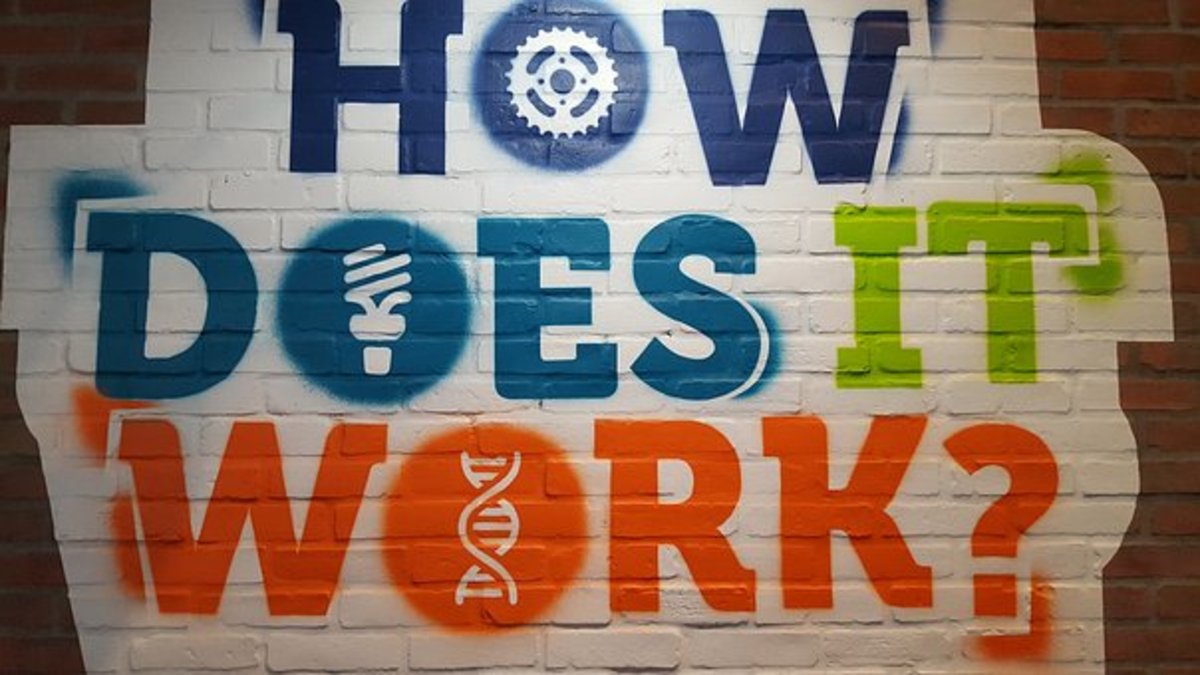Teach thinking skills in high school

In my college freshman philosophy class, the instructor asked the students to prove to him that God exists. Many regurgitations of childhood “proofs” were given, and by the end of the hour there “was” a shrunken man with long whiskers squatting on the corner of his desk. The students became frustrated and tuned out the entire remainder of the course. They felt their ideas were being summarily dismissed. For the final exam, students were allowed to choose either an objective (Q&A) test or a subjective exam. Only two of us, out of a couple of hundred, opted for the subjective exam.
In my senior year, I gave a speech to a class with many of the same students. I explained that this instructor was trying to get the students to think on their own and failed. A lot of students came up to me after that speech and said it was true; many of them were engineering students, comfortable only with hard facts.
This experience is symptomatic of what happens when a student graduates high school with no training on how to think independently, much less critically.
In elementary school, there is a lot to learn by rote – basic math, reading, geography and writing. In many school systems, creativity is encouraged through arts, music and writing. But independent thinking is discouraged – this is considered the time to teach students conformity and obedience.
During middle school, while making the transition from child to teen, the student should also be making the transition from puppet to thinker. Math courses should go from basic arithmetic to solving word problems, learning to apply analysis to a situation in order to figure out how to solve it. History should not just be a list of names and dates; students should get involved in why a date is important and what caused an historical event. Science courses should emphasize the derivatives of discoveries.
Once in high school, the students who have not been taught the above-mentioned thinking skills are at a great disadvantage. Without being able to trust their own ability to derive answers, students will have serious difficulty with such subjects as geometry and physics. Understanding the cause of phenomena will make it easier for a student to remember an event, and allow the student to apply the same process across the curriculum.
Unfortunately, high schools concentrate on echoing facts in an effort to keep their own ratings and assist students with Regents tests, ACT tests and SAT scores. These tests have come under the gun for being biased and subjective, for good reason. It is very possible to prepare for these tests without ever learning how to think.
For those students planning to go on to college, college admissions try to balance the fact-regurgitation with such criteria as school club membership, sports and essays. None of this discerns a thinker from a fact hound. Many “A students” in high school flunk out of college because they never learned how to study or to think critically. All the colleges can do is guess which applicant has the best chance of succeeding in higher education. Once the student is enrolled in a college, the one who will succeed is the one who has the ability to apply critical thinking to all subject matter.
I am reminded of an incident in my own college career. My sociology instructor did not seem to be interested in his profession. I found his recitation boring and not very logical. Yet all I could get is a C on his tests. I decided I could get a C without attending the class. One day in the cafeteria I found myself behind this instructor in line. He recognized me and asked why I had not been in class. I told him I didn’t agree with his theories and theorists, but could repeat them well enough to pass the course. He made a deal – attend class; on tests, I was free to disagree as long as I could back it up. Deal made, I got an A in the course.
College professors relish students who can think critically and will foster the practice if they can. Unfortunately, often when an instructor endeavors to encourage critical thinking, lazy or threatened students will balk and even rebel. Students have been known to report an instructor as unwilling to teach if the instructor shows the student how to approach a question rather than handing the answer to the student. Even on a baccalaureate level, the increased requirements of theses and research have been a small hurdle to the student with thinking skills.
For students not planning to go to college, critical thinking is possibly even more essential, since they will not have the advantage of college professors. In this electronic age, a person needs to be able to discern false information over true, and identify scams immediately. Every career will be enhanced by being able to think “beyond the box”, whether it be construction, office work or marketing. People need to be able to evaluate life choices reasonably in order to enhance their own well-being. This can only be achieved by clear thinking.
I was blessed to attend a public high school with a lot of bright students; the administration was very proactive in developing curricula that would encourage creative and critical thinking from seventh grade on. This can apply to all subject matter. Consider understanding odds in calculus or applying trigonometry to professional quandaries. There is a famous saying which goes “Those who cannot remember the past are condemned to repeat it." (George Santayana). But even if one remembers the past – if one does not understand why events in the past have occurred, the history will still be repeated. Research in any of the sciences, hard or soft, requires a person to reach an hypothesis which is original and determine a method to prove or disprove it. Even in graphic arts, copying an artist’s style is of no value – the artist needs to be able to look beyond the extant views to achieve originality. Any great author has to go beyond the expository to achieve recognition.
Certainly having parents who encourage decision-making and free thinking are a blessing as well, but too many of the current generation of parents have not had this training advantage, so it needs to be available on the high school level. Perhaps these students can teach their parents.
© 2014 Bonnie-Jean Rohner








